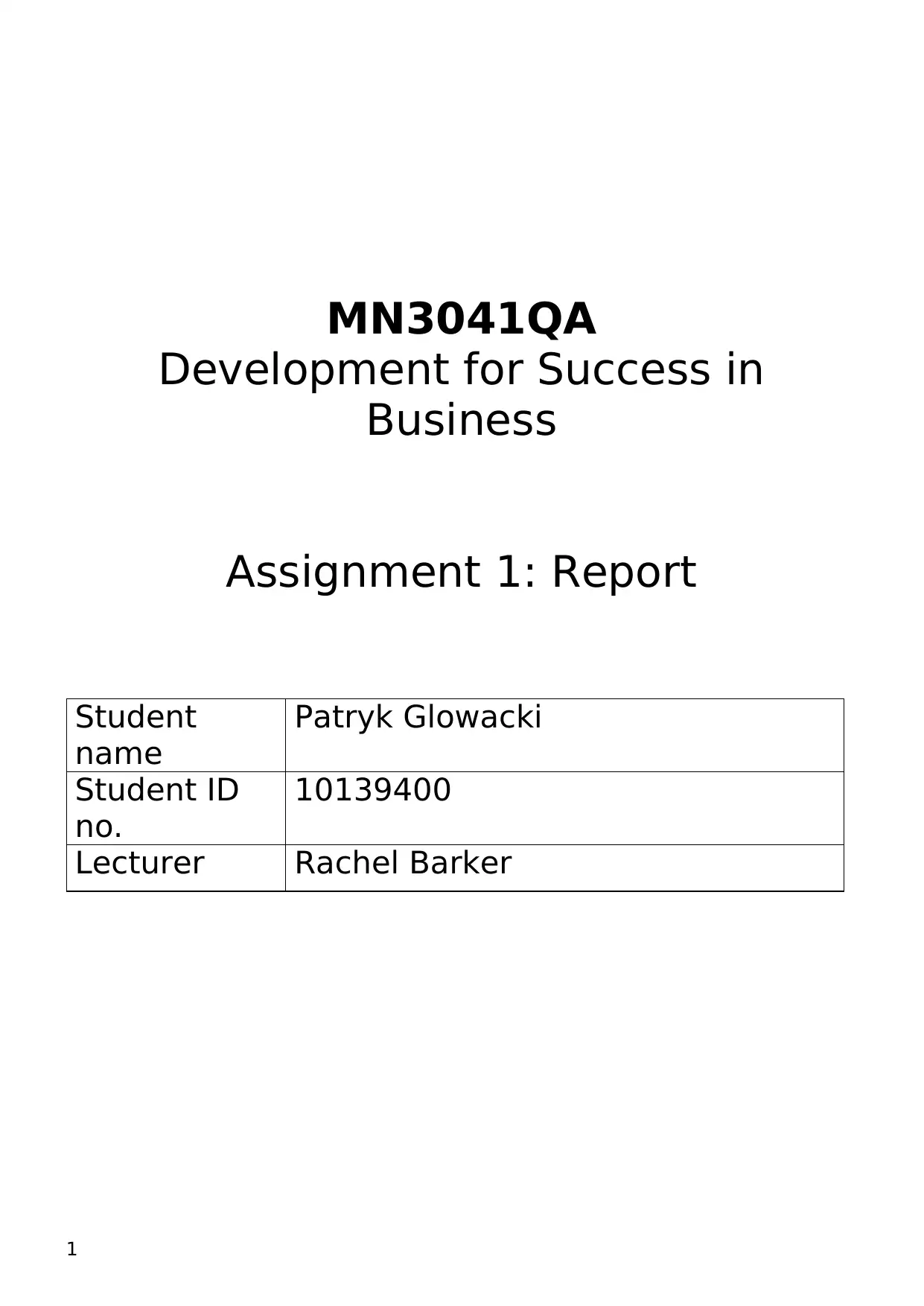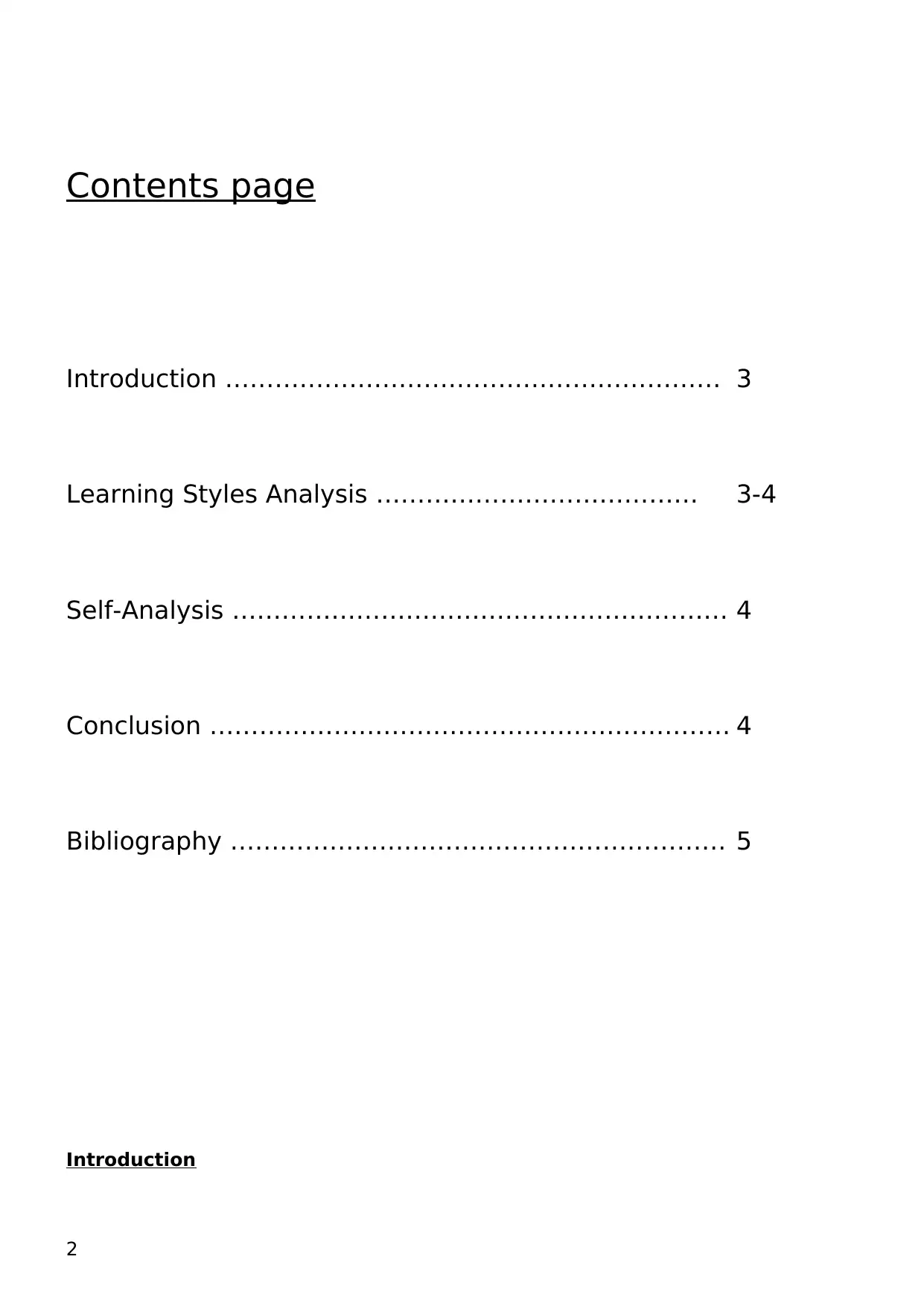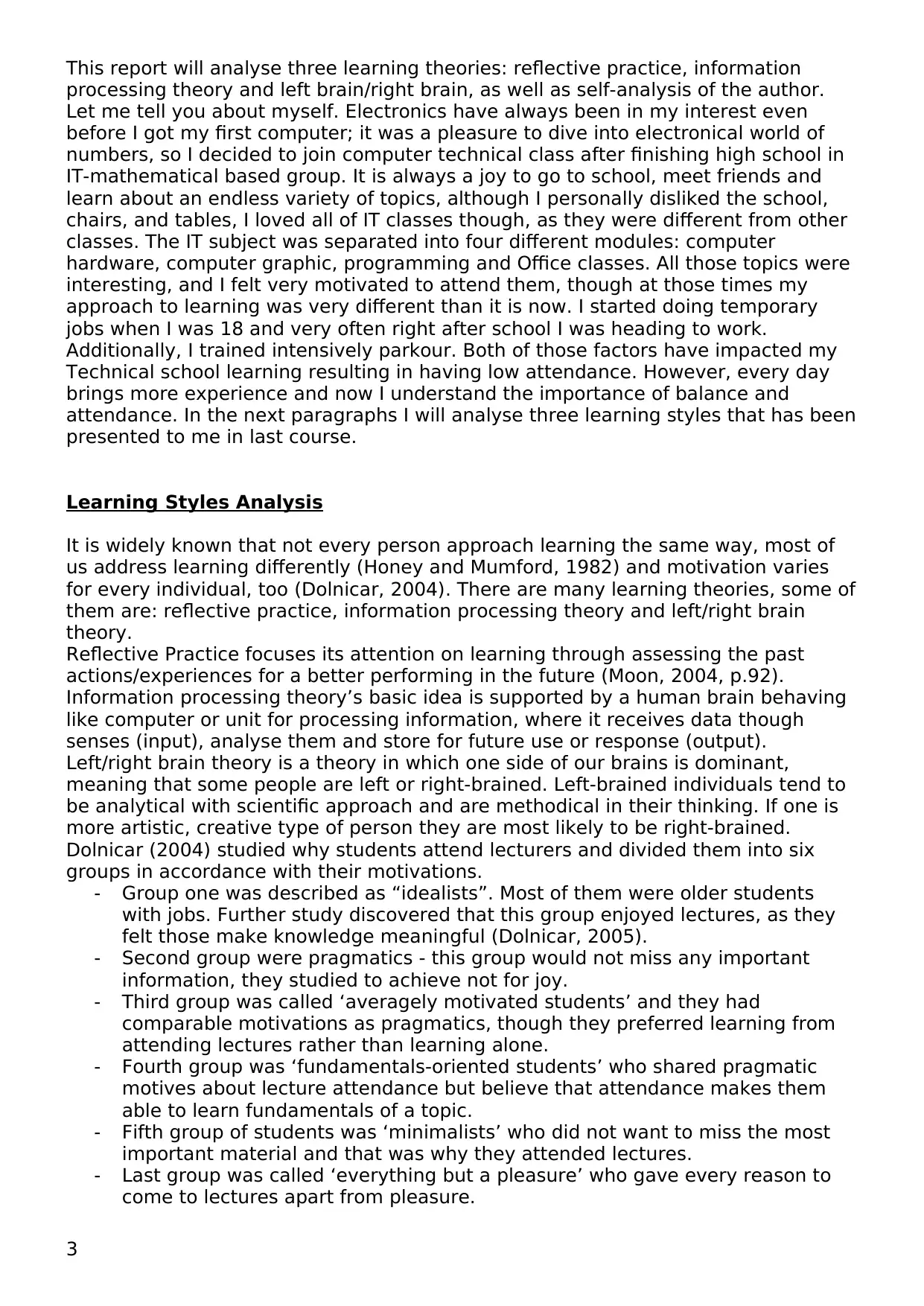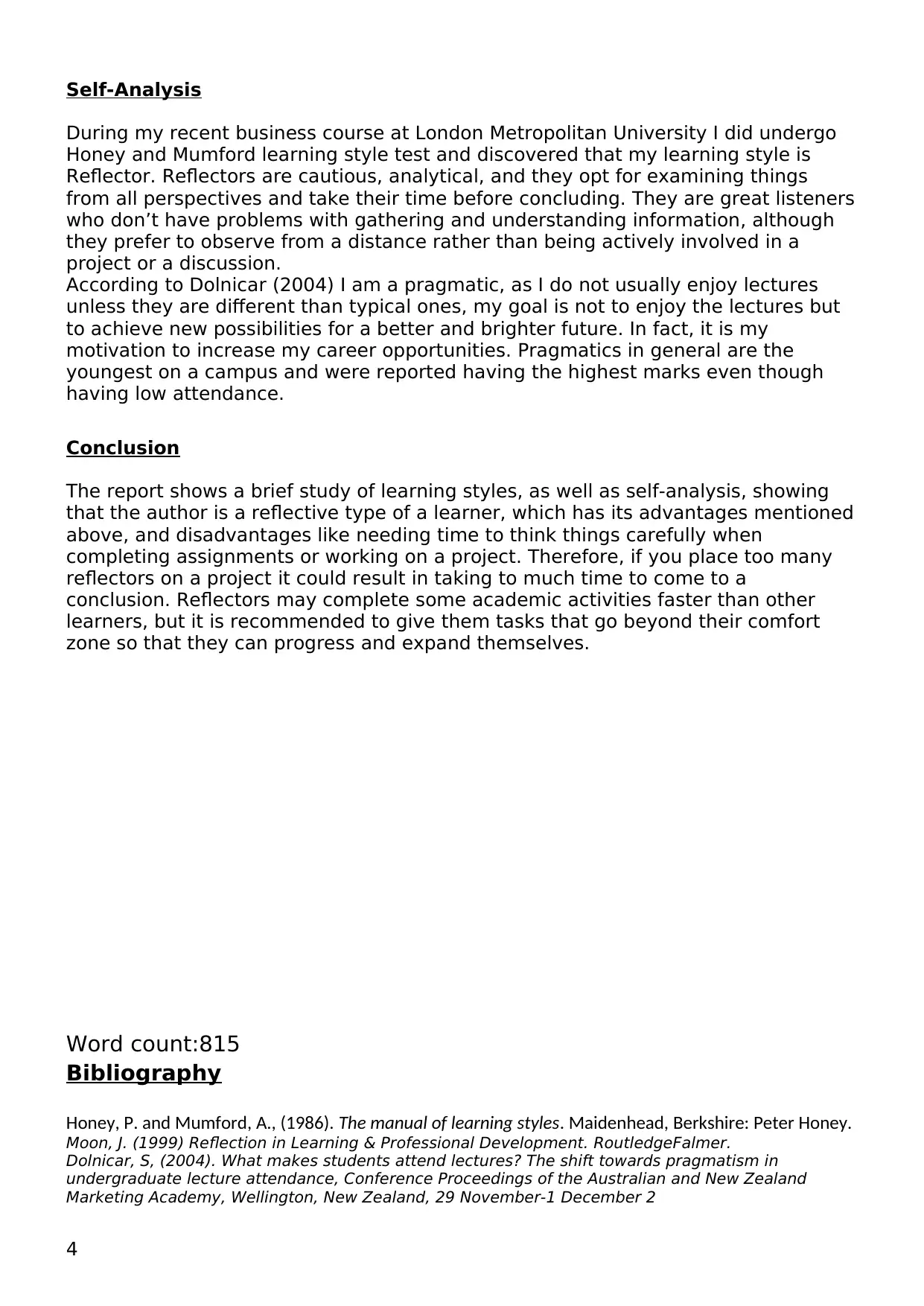MN3041QA Development for Success in Business: Report Analysis
VerifiedAdded on 2021/06/02
|5
|1098
|131
Report
AI Summary
This report, submitted for the MN3041QA Development for Success in Business course at London Metropolitan University, analyzes three key learning theories: reflective practice, information processing theory, and the left/right brain theory. The report includes a self-analysis of the author, a Reflector according to the Honey and Mumford learning style test, who exhibits pragmatic tendencies. The analysis references Dolnicar's research on student motivations, categorizing the author as pragmatic, driven by career opportunities. The report contrasts various learning styles, discusses the advantages and disadvantages of a reflective learning style, and concludes with recommendations for maximizing the author's learning potential and the potential impact of a reflective learner in a team. The report also references the bibliography that includes Honey, P. and Mumford, A., (1986). The manual of learning styles. Maidenhead, Berkshire: Peter Honey. Moon, J. (1999) Reflection in Learning & Professional Development. RoutledgeFalmer. Dolnicar, S, (2004). What makes students attend lectures? The shift towards pragmatism in undergraduate lecture attendance, Conference Proceedings of the Australian and New Zealand Marketing Academy, Wellington, New Zealand, 29 November-1 December 2 Dolnicar, S. (2005). Should we still lecture or just post examination questions on the web? The nature of the shift towards pragmatism in undergraduate lecture attendance, Quality in Higher Education11(2), pp. 103-115 1
1 out of 5












![[object Object]](/_next/static/media/star-bottom.7253800d.svg)